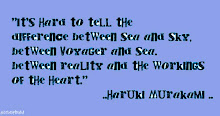I've got to post this article. It's about common grammar mistake. No matter how detail we can be, there can always be something that slip out of our mind and sight. I found this article on Litreactor. I posted some of the mistake below, you can read the complete article by clicking here.
20 Common Grammar Mistakes That (Almost) Everyone Makes
Below are 20 common grammar mistakes I see routinely, not only in editorial queries and submissions, but in print: in HR manuals, blogs, magazines, newspapers, trade journals, and even best selling novels. If it makes you feel any better, I’ve made each of these mistakes a hundred times, and I know some of the best authors in history have lived to see these very toadstools appear in print. Let's hope you can learn from some of their more famous mistakes.
Who and Whom - This one opens a big can of worms. “Who” is a subjective — or nominative — pronoun, along with "he," "she," "it," "we," and "they." It’s used when the pronoun acts as the subject of a clause. “Whom” is an objective pronoun, along with "him," "her," "it", "us," and "them." It’s used when the pronoun acts as the object of a clause. Using “who” or “whom” depends on whether you’re referring to the subject or object of a sentence. When in doubt, substitute “who” with the subjective pronouns “he” or “she,” e.g., Who loves you? cf., He loves me. Similarly, you can also substitute “whom” with the objective pronouns “him” or “her.” e.g., I consulted an attorney whom I met in New York. cf., I consulted him.
Which and That - This is one of the most common mistakes out there, and understandably so. “That” is a restrictive pronoun. It’s vital to the noun to which it’s referring. e.g., I don’t trust fruits and vegetables that aren’t organic. Here, I’m referring to all non-organic fruits or vegetables. In other words, I only trust fruits and vegetables that are organic. “Which” introduces a relative clause. It allows qualifiers that may not be essential. e.g., I recommend you eat only organic fruits and vegetables, which are available in area grocery stores. In this case, you don’t have to go to a specific grocery store to obtain organic fruits and vegetables. “Which” qualifies, “that” restricts. “Which” is more ambiguous however, and by virtue of its meaning is flexible enough to be used in many restrictive clauses. e.g., The house, which is burning, is mine. e.g., The house that is burning is mine.
Lay and Lie - This is the crown jewel of all grammatical errors. “Lay” is a transitive verb. It requires a direct subject and one or more objects. Its present tense is “lay” (e.g., I lay the pencil on the table) and its past tense is “laid” (e.g.,Yesterday I laid the pencil on the table). “Lie” is an intransitive verb. It needs no object. Its present tense is “lie” (e.g., The Andes mountains lie between Chile and Argentina) and its past tense is “lay” (e.g., The man lay waiting for an ambulance). The most common mistake occurs when the writer uses the past tense of the transitive “lay” (e.g., I laid on the bed) when he/she actually means the intransitive past tense of “lie" (e.g., I lay on the bed).
May and Might - “May” implies a possibility. “Might” implies far more uncertainty. “You may get drunk if you have two shots in ten minutes” implies a real possibility of drunkenness. “You might get a ticket if you operate a tug boat while drunk” implies a possibility that is far more remote. Someone who says “I may have more wine” could mean he/she doesn't want more wine right now, or that he/she “might” not want any at all. Given the speaker’s indecision on the matter, “might” would be correct.
Farther and Further - The word “farther” implies a measurable distance. “Further” should be reserved for abstract lengths you can't always measure. e.g., I threw the ball ten feet farther than Bill. e.g., The financial crisis caused further implications.
Different Than and Different From - This is a tough one. Words like “rather” and “faster” are comparative adjectives, and are used to show comparison with the preposition “than,” (e.g., greater than, less than, faster than, rather than). The adjective “different” is used to draw distinction. So, when “different” is followed by a preposition, it should be “from,” similar to “separate from,” “distinct from,” or “away from.” e.g., My living situation in New York was different from home. There are rare cases where “different than” is appropriate, if “than” operates as a conjunction. e.g.,Development is different in New York than in Los Angeles. When in doubt, use “different from.”
Affect and Effect - Here’s a trick to help you remember: “Affect” is almost always a verb (e.g., Facebook affects people’s attention spans), and “effect” is almost always a noun (e.g., Facebook's effects can also be positive). “Affect” means to influence or produce an impression — to cause hence, an effect. “Effect” is the thing produced by the affecting agent; it describes the result or outcome. There are some exceptions. “Effect” may be used as a transitive verb, which means to bring about or make happen. e.g., My new computer effected a much-needed transition from magazines to Web porn. There are similarly rare examples where “affect” can be a noun. e.g., His lack of affect made him seem like a shallow person.
Nauseous - Undoubtedly the most common mistake I encounter. Contrary to almost ubiquitous misuse, to be “nauseous” doesn’t mean you’ve been sickened: it actually means you possess the ability to produce nausea in others. e.g., That week-old hot dog is nauseous. When you find yourself disgusted or made ill by a nauseating agent, you are actually “nauseated.” e.g., I was nauseated after falling into that dumpster behind the Planned Parenthood. Stop embarrassing yourself.
(article via litreactor.com - image via weheartit.com)














No comments:
Post a Comment